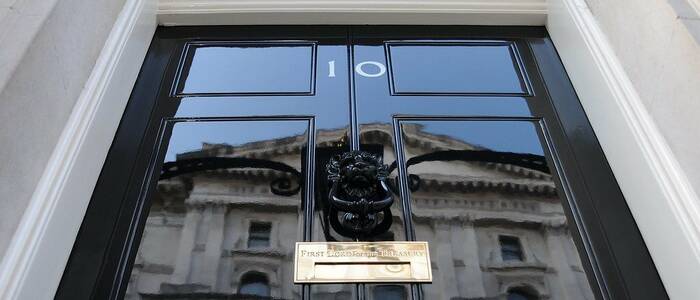Ten for Number 10: Expanding our ideas for Rishi Sunak’s Government Part 2

As Rishi Sunak reaches 100 days in office, I wanted to take the opportunity to revisit the Ten for Number 10 list I put together when he initially took office. In my previous blog, I expanded on 5 of the points (coloured in grey below), explaining how I thought the government should approach these areas. In this blog, I wanted to take time to reflect on the remaining 5 points.
We also want to ensure that your voices are heard, and we’d like to hear your thoughts of what approaches and priorities the current government should take. We’ll also share your input with parliamentarians from the All-Party Parliamentary on Faith and Society, who we work closely with as secretariat.
You can send us your thoughts using the form below.
#Ten10
Recruit all the talents in government and the country including Voluntary Sector and Faith
The Prime Minister’s choice of ministers has already stirred up controversy – but our request is a broader call. There are many talented and dedicated people from every walk of life. There is much wisdom and problem-solving ability in the faith and the voluntary sector; it’s time to look beyond Whitehall (Parliament, parties and the civil service) and the City of London (financial district) for initiatives and solutions for the UK in 2022.
Time to be strategic with stimulus—levelling up is not a catchphrase but a social justice phrase. There is an opportunity to do something significant for the UK in these difficult times. (e.g launch of NHS in post-war austerity)
Having a more equal Britain is not only a great election strategy, but something that will benefit the whole nation if approached correctly. Whether it be levelling up, social mobility opportunities or confronting and solving various health inequalities, the government should invest for the long-term not for short term gain,
Government investment and stimulus is important as a guide and instigator, but the public sector is not enough on its own. Rallying all the assets, stakeholders and solutions within targeted areas is essential. This has to include faith communities and institutions as well as private business and the civil society sector more broadly.
The Department for Levelling up should convene round tables (as many departments did during the pandemic), alongside other departments (such as Health & Social Care, Business, Innovation and Education), pool talent and enlist innovative problem solvers from faith and civil society as well as from regional businesses to develop a nuanced Levelling Up plan, which recognises social and faith capital as key to long term growth as financial stability.
The social care system needs an honest cross-party approach. We must consider an aging population and the tax burden falling on a shrinking younger population. A practical review of our approach to migration needs to be grappled with, away from soundbites and cheap headlines.
Many developed nations have dropping birth rates. There is a real possibility that there will not be sufficient a tax base to support public services due to facing a shortage of workers in a time of low unemployment. Redesigning a social care system for the future, turning migration to an asset instead of a cheap headline, and combining compassion with pragmatism are all things in which faith can play a significant role.
Many faith communities have been at the forefront of responding to the recent immigration issues of Hong Kongers, Afghans and Ukrainians. People have literally put their money, and their homes, where their mouth is.
One obvious step should be around allowing those seeking settlement to work and thus contribute while their status is decided.
Mobilising social and faith capital—it’s not all about the finance sector, it’s not all about public sector spending. Civil society has a role to play and should be adequately resourced and consulted to design and produce solutions.
With the many challenges (e.g. costs of living) and injustices (e.g. health inequalities) that we face in the UK today, we cannot pursue the same patterns and expect change. Thus, we cannot only look to public services or private enterprise to effect changes. Government needs to utilize the benefits found in social and faith capital—the human connections, shared knowledge, and trust that is exemplified by faith and community organisations. These are best typified by the African notion that ‘it takes a village to raise a child’.
This may well lead to a more fundamental national conversation about the development of UK culture and a rebalance of the rights of the individual – to better appreciate the advantage of family, group and community.
Education needs to not be at the whim of ideologies and broaden its ability to create social mobility as well as build on values in communities.
The fundamental value of education and learning should be recognised in itself and not just seen as transactional. A person who has had a good education has various personal tools to deal with many of life’s challenges as well as the opportunity to develop positive personal character traits. This chimes with the Chancellor’s autumn statement, in which he stated that “providing our children with a good education is not just an economic mission, it’s a moral mission.”
However, the disparity in career prospects driven by the challenges of the ever-changing nature of the economy and nature of our current education system have to be appreciated. The further development of rigorous technical and vocational programmes is important to create better parity between vocational and academic tracks, and greater opportunity should be given for students to start up businesses and run organisation and societies. Such activities should be give credit alongside academic performance for UCAS entrance.
New, recognised routes should be established for young people to develop themselves and gain crucial skills through business, work experience and community projects with a particular focus on Levelling Up areas. This is intended to raise ambition and effort around opportunities to benefit local communities and increase social mobility.
Government has to be about protection and security; protection of the vulnerable whether at home or abroad and security; economic, social, and financial to achieve this. ‘Doing our bit’ has been one of the ways we have been a leading nation, whether this has been in an unreported situation such as Sierra Leone or closer to home like Ukraine.
Faith as a part of civil society has a role to hold up issues of justice and conscience to governments. Because of the international nature of faith, it means that issues of injustice outside news patterns and interest will often be flagged up by faith communities.
Faith should be seen as an asset, not a risk, and therefore there should be a Minister for Faith at the Cabinet table
Faith communities prove themselves to be the first in and the last out again and again. Yet there are some who would rather Faith not recognised in the public square. As well as this being against the essence of the equalities act 2010, it disables society from seeing anything to do with faith as positive.
There needs to be a faith minister at the cabinet table to advocate for faith as a benefit to wider society. This is not a defensive role but needs to prompt the positive solution-focused approach or faith. Although a faith minister would understand that faith is not just for crises, such a dedicated minister would be ready to advise deployment at troubles times.
As faith is not just for a crisis or election season, a faith commissioner should be established be a conduit for faith into Government, demonstrating the possibilities for the role of faith in the public square.
The impact and possibilities of faith are far too important to leave to the whims of the election cycle. A permanent role – such as a faith commissioner (see Keeping the Faith 2.0, p43) – would give the work of faith and government more permanence and could capitalise on the longevity of faith communities.
A faith task and finish group should be established to look at knotty issues for the UK: a) levelling up and health inequalities, b) immigration, migration and integration, c) cost of living crisis.
Some issues are too important to leave to the politicians alone. In a similar way to Royal Commissions, these groups will take a non-partisan approach to solving deep rooted issues. Like the issues of funding social care, the long term solutions will often be unpalatable.
Faith participation will be key to any such group, because of the proximity of faith communities to those who are seldom heard, as well as the geographic spread of faith into every corner of the UK.
Government should support and sign the Faith Covenant, established by the APPG on Faith and Society.
The more that can be done to explicitly recognise the relationship between government and faiths the more powerful this partnership can be.
Currently over 5 million people live in an area covered by a Faith Covenant.
The presence of the covenant has been a key factor in galvanising civil society responses to emergencies, such as the pandemic and the refugee crisis. Where a Faith Covenant exists, there is a relationship between local government and local faith communities. Thus, a civil building black is in place – a fundamental step towards building a stronger Britain.

About Daniel Singleton
National Executive Director
Daniel Singleton has been the National Executive Director of FaithAction since 2007. This role has seen Daniel forge close working relationships across a number of national government departments, as well as local statutory and voluntary-sector bodies. As part of FaithAction’s mission to connect national and local government with grassroots organisations, Daniel also meets regularly with FaithAction member groups to help them develop in their social action.


